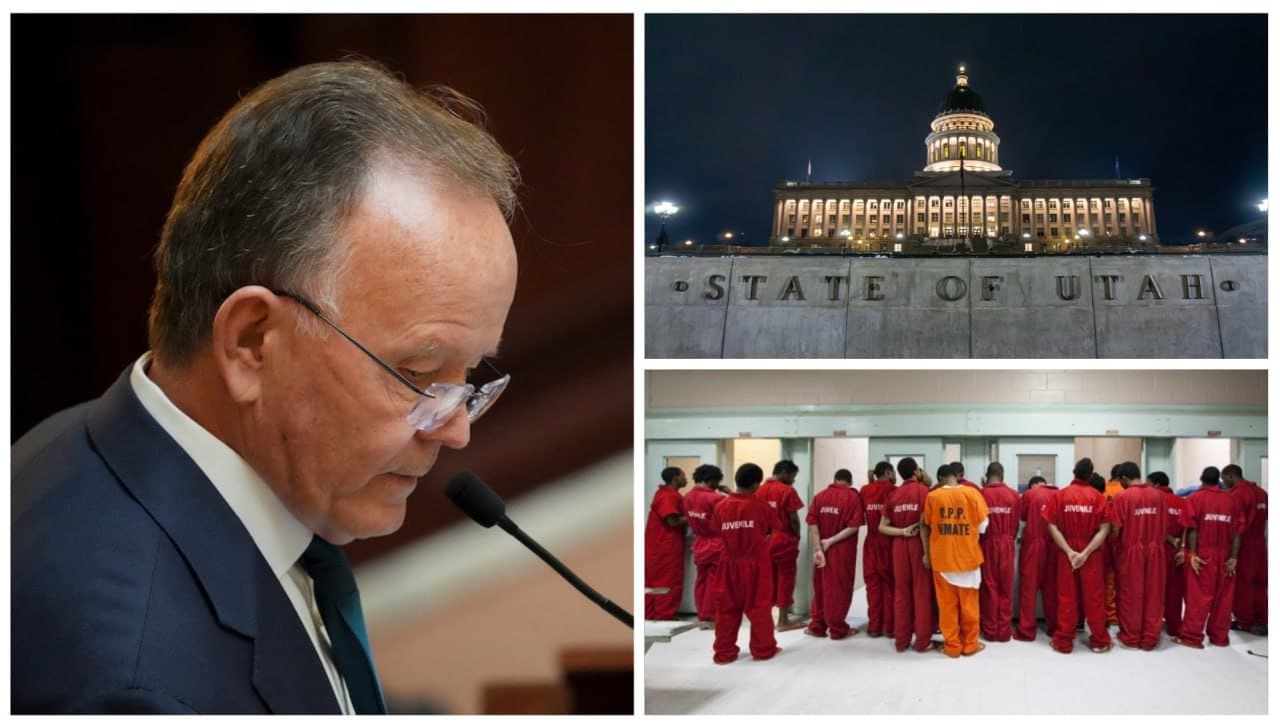Utah Senator"s Law Reduces Charges for Relative Accused of Sex with Minor
In a controversial turn of events, a teenager in Utah has managed to evade a serious sentence for engaging in sexual acts with a minor, raising questions about the implications of legislative influence on judicial outcomes. This case has garnered significant media attention, particularly due to the familial connection between the accused and a prominent state senator.
Background & Context
In 2024, Utah Senator Stuart Adams sponsored a bill that amended existing laws regarding sexual offenses between minors. The legislation softens the penalties for sexual interactions between teenagers, particularly when both parties are enrolled in school. Under the new law, charges of child rape can be replaced with lesser offenses, significantly reducing the potential for severe legal repercussions. The law has stirred debate about its implications for victims and offenders alike, especially in light of recent high-profile cases.
The case in question involves Adams" 18-year-old relative, who was accused of having sexual relations with a 13-year-old girl. Although the new legislation does not retroactively apply to offenses committed before its enactment, the young man’s charges were nonetheless reduced following his guilty plea. This has raised eyebrows among legal experts and advocates for victims’ rights, who argue that such legislative changes can unduly influence judicial processes.
Key Developments
Following the adoption of the new law, the teenager"s attorney successfully argued for a reduction in charges, resulting in no prison time and no requirement to register as a sex offender. Had the case been prosecuted under the previous statutes, the young man could have faced a minimum of six years in prison, with the possibility of life sentences for more severe charges. The reduction of charges has been attributed directly to the new legal framework established by Senator Adams.
Kara Tangaro, the attorney representing the 13-year-old victim, expressed her concerns regarding the implications of the new law. She stated, "The adoption of this legislation has clearly played a key role in the outcome of this case. It sends a troubling message about how we prioritize the protection of minors in situations like this." The case has ignited discussions about the appropriate balance between legislative reform and the safeguarding of vulnerable populations.
Broader Impact
This incident highlights a growing trend in various states where lawmakers are revisiting sexual offense statutes, often with the intention of aligning them more closely with the realities faced by teenagers. However, critics argue that such reforms can inadvertently minimize the seriousness of offenses involving minors and undermine the experiences of victims. The debate is not just confined to Utah; similar legislative changes have sparked discussions across the country about how best to address adolescent sexual behavior without compromising the safety and rights of minors.
Experts in criminal justice and child advocacy are concerned that leniency in these laws could lead to a culture where minor victims feel less empowered to report abuses. “We risk normalizing harmful behaviors when we lower penalties for sexual offenses, especially when minors are involved,” noted Dr. Linda Harris, a child psychology expert. “The law should reflect the seriousness of these actions and prioritize the well-being of the young victims.”
What"s Next
As the fallout from this case continues, it is likely to prompt further scrutiny of the legislative process in Utah and beyond. Advocates for reform may push for more stringent laws that protect minors while ensuring that the judicial system holds offenders accountable. Moreover, this case could catalyze discussions in other states regarding the adequacy of existing laws governing sexual offenses involving minors.
In light of the controversy, stakeholders from both sides of the debate are expected to engage in discussions about potential amendments to the current law. As previously reported, similar situations have arisen in other states, where legislative changes have faced backlash for being perceived as too lenient. The outcome of this case may serve as a pivotal moment in shaping future policies related to adolescent sexual offenses and the legal frameworks that govern them.


![[Video] Federal agents chase woman in Minneapolis during protest](/_next/image?url=%2Fapi%2Fimage%2Fthumbnails%2Fthumbnail-1768254086697-5gfcba-thumbnail.jpg&w=3840&q=75)




![[Video] Gunfire between Iraqi security forces and Sadr militias in Baghdad](/_next/image?url=%2Fapi%2Fimage%2Fthumbnails%2Fthumbnail-1768343508874-4redb-thumbnail.jpg&w=3840&q=75)
